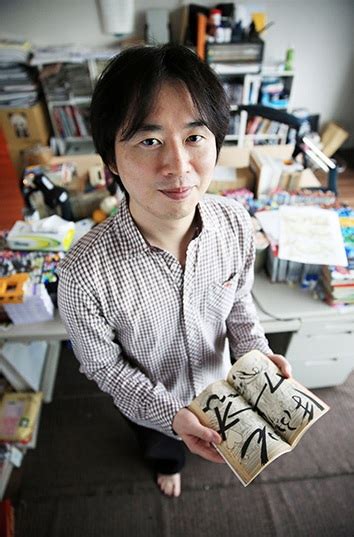A Quote by Lynn Coady
Formalized rules of manners were so great because they left no room for basic human haplessness. They allowed us to circumvent our natural boorish tendency to disregard the feelings of others.
Related Quotes
One of the fundamental demonstrations of our natural instinct to Bond with each other is a will to give. Rather than domination, our most basic urge is to reach out to another human being, even at a cost to ourselves. Giving to others-the urge to empathize, to be compassionate, and to help others altruistically-is not the exception to the rule, but our natural state of being. Our impulse to connect with each other has developed an automatic desire to do for others, even at personal cost. Altruism comes naturally to us. It is selfishness that is culturally conditioned and a sign of pathology.
More fundamental than religion is our basic human spirituality. We have a basic human disposition towards love, kindness and affection, irrespective of whether we have a religious framework or not. When we nurture this most basic human resource - when we set about cultivating those basic inner values which we all appreciate in others, then we start to live spiritually.
Human manners are wildly inconsistent; plenty of people have said so. But this one takes the cake: the manner in which we're allowed to steal from future generations, while commanding them not to do that to us, and rolling our eyes at anyone who is tediously PC enough to point that out. The conspicious consumption of limited resources has yet to be accepted widely as a spirtual error, or even bad manners.
I've always thought that people who left a great deal of money in their will never enjoyed the great honor and privilege and heart-rendering feeling of giving to others during their lifetime, because they were too selfish to give to others while they were alive, so they made sure they were dead and couldn't use it anymore.
Many of us have a tendency to deny any negative feelings. We judge them as "bad" or "unenlightened" when, in fact, they are our stepping stone to enlightenment. Our so-called negative feelings or attitudes are really parts of ourselves that need recognition, love, and healing. Not only is it safe and healthy to acknowledge and accept all of our feelings and beliefs, it is necessary, if we are to get in touch with the fears and pockets of blocked energy that are holding us back from what we want.
However capable and skillful an individual may be, left alone, he or she will not survive. When we are sick or very young or very old, we must depend on the support of others. There is no significant division between us and other people, because our basic natures are the same. If we wish to ensure everyone's peace and happiness, we need to cultivate a healthy respect for the diversity of our peoples and cultures, founded on an understanding of this fundamental sameness of all human beings.
In the way that scepticism is sometimes applied to issues of public concern, there is a tendency to belittle, to condescend, to ignore the fact that, deluded or not, supporters of superstition and pseudoscience are human beings with real feelings, who, like the sceptics, are trying to figure out how the world works and what our role in it might be. Their motives are in many cases consonant with science. If their culture has not given them all the tools they need to pursue this great quest, let us temper our criticism with kindness. None of us comes fully equipped.
Our global institutional arrangements - the basic ground rules that govern our world economy - are human-made. They don't exist naturally, nor are they God-given. We make these rules, those of the WTO [World Trade Organization] Treaty for instance, which fill tens of thousands of pages. These words have been strung together by human beings and are also interpreted and enforced by human beings.






































